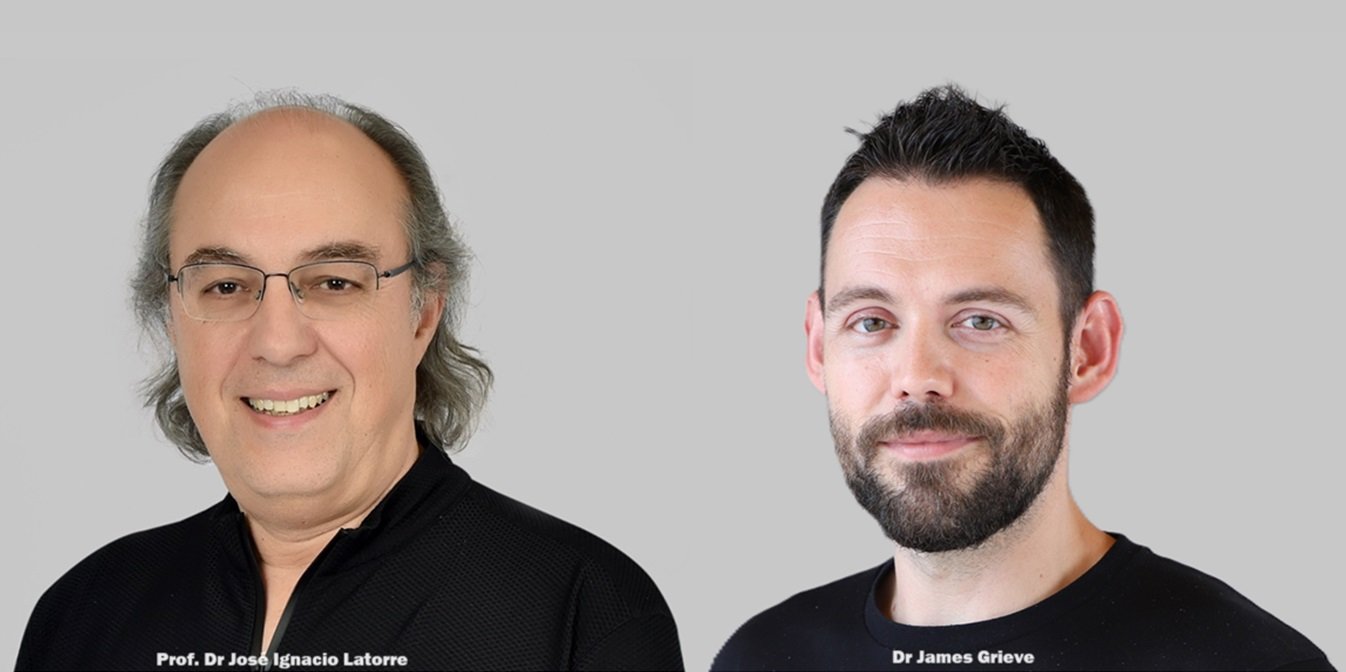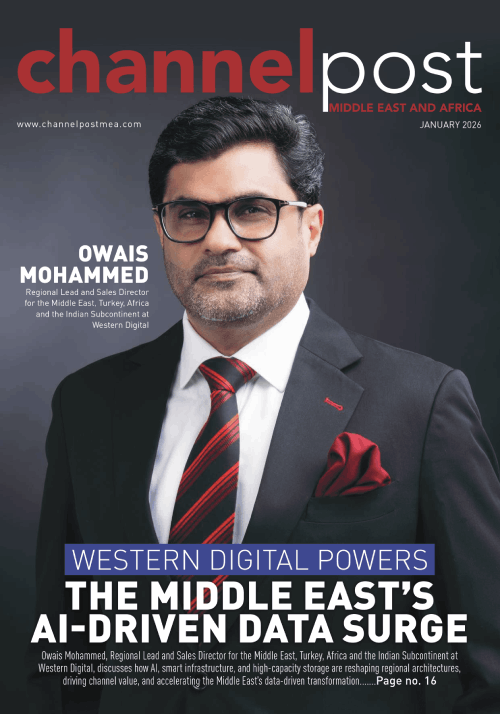Prof. Dr José Ignacio Latorre, Chief Researcher, and Dr James Grieve, Senior Director for Quantum Communications at the Quantum Research Center (QRC) of the Technology Innovation Institute, discuss the Center’s focus on quantum computing, sensing, and communications. They highlight innovations in cryptography and AI, challenges like qubit stability and skills shortages, and anticipate future advancements in industrial applications and global quantum networks.
Can you explain quantum computing in simple terms for those unfamiliar with the concept?
Prof. Dr. José Ignacio Latorre: Quantum computing uses special algorithms based on quantum mechanical principles for data processing. In contrast to conventional computers, which work with bits, quantum computers use qubits (a two-state quantum-mechanical system) as information units. This makes quantum computers significantly more powerful than conventional computers. As a result, they can solve complex problems faster and open new possibilities in computationally intensive areas such as cryptography or artificial intelligence.
What are the primary research areas and projects currently being undertaken at the Quantum Research Center?
Prof. Dr. José Ignacio Latorre: At present, we are focusing on advancing the state-of-the-art in quantum technologies across the focus areas of quantum computing, quantum sensing, and quantum communications. As an applied research center, our emphasis is on innovations that stand to make real, tangible differences to clients and early adopters.
What are the latest trends in quantum computing and quantum technologies?
Prof. Dr. José Ignacio Latorre: The ability of quantum computers to solve complex problems on a previously impossible scale is attracting more and more interest from companies, governments and academia, which is driving further research and investment. At present, the focus is on applications that stand to see near-term benefits, e.g. in the simulation of novel materials for energy storage or portfolio optimization for finance.
How does quantum computing differ from classical computing in terms of problem-solving capabilities?
Prof. Dr. José Ignacio Latorre: Standard computers process information in bits, where each bit is represented by a zero or one. However, quantum computers use so-called “qubits” (or “quantum bits”) which can represent a complex combination of 0 and 1 at the same time and allow for parallel processing and complex connections. This enables quantum computers to process highly complex calculations that would be too resource-intensive for normal computers to tackle.
What are some of the most significant challenges in developing and scaling quantum computers?
Dr. James Grieve: A significant obstacle to quantum computing is the error-proneness and instability of the qubits. To build truly powerful quantum computers, researchers must both increase the number of qubits and at the same time reduce their susceptibility to errors. Only then can meaningful calculations be successfully completed. Another challenge relates to the environmental operating requirements for the underlying quantum hardware, for example systems built around superconducting circuits must be cooled to extremely low temperatures using large and complex dilution refrigerators. Looking further ahead, experts are also predicting a skills shortage due to the specialized nature of the field and the time required to train the future quantum workforce.
Can you share any recent breakthroughs or significant advancements made by your team?
Dr. James Grieve: Making useful quantum computing available to industry requires us to build algorithms that are resilient against the hardware errors that plague today’s quantum computers. Our quantum algorithms team recently developed a novel quantum algorithm for solving large-scale combinatorial optimization problems with few qubits. When implemented in experimental hardware from IonQ and Quantinuum (two prominent quantum computing companies) the team were able to show the deployment of the largest ever algorithm of this type, with high quality: 2,000 decision variables with very high approximation ratios. Advances like these show how our team push the state-of-the-art, bringing us closer to a day when quantum computers will drive real advantage for industry.
How do you collaborate with other research institutions and industries to advance quantum technologies?
Dr. James Grieve: We believe that sharing knowledge with the global community is essential to advancing scientific research. That is why our subject matter experts at QRC – as well as all departments at TII – work together with leading universities, research institutions and industry partners from all over the world to conduct basic research and work on new projects.
What educational and training initiatives does the Quantum Research Center have to develop future talent in quantum computing?
Prof. Dr. José Ignacio Latorre: QRC regularly hosts seminars delivered by visiting experts from around the world, as well as dedicated workshops on focus topics. Our team includes many active PhD students, and we frequently host interns across all our quantum technology verticals. Experts from our research center have also served on judging panels for hackathons and advise a number of external entities focused on industrial outreach.
How do you see quantum computing evolving over the next 2-3 years, and what key milestones do you anticipate?
Dr. James Grieve: Over the next 2-3 years, quantum computing will likely see further developments in terms of both hardware and software. Key milestones will include advancements in the number and quality of qubits in quantum computers, refinement and even breakthroughs in quantum algorithms and error correction methods, as well as developments that make the domain more accessible, for example in specific quantum programming languages and development environments. In the domain of quantum communications, we are already witnessing a roll-out of quantum key distribution, a technology which uses quantum mechanics to upgrade our computer networks to previously impossible levels of security. Within 2-3 years, many national-scale networks will be completed, while dedicated quantum satellites will be launched to connect networks on a global scale.
What difference will quantum computing make on the computing level compared to today’s classical computers?
Dr. James Grieve: Quantum computers will revolutionize data processing, as they are able to perform complex tasks such as the factorization of large numbers, the simulation of molecular structures and the optimization of large systems that would be impossibly resource intensive using conventional computers. As a result, quantum computers will enable industrial use-cases that were simply beyond the reach of conventional computers, even when scaled to the largest supercomputer clusters. It is not an exaggeration to say that we should expect quantum computers to enable completely unpredictable breakthroughs, eventually impacting almost all areas of society.
How do you think quantum computing will impact our daily lives in the near future?
Prof. Dr. José Ignacio Latorre: Quantum computing has made great progress in recent years and the state-of-the-art is advancing rapidly. However, commercial and everyday use will depend greatly on how and whether organizations and experts work together to connect the emerging capabilities to real-world use cases. At QRC, we are committed to this joint path forward and work closely with global experts and local industry to explore the boundaries of what is possible, both today and in the future.
What are the most promising quantum computing applications that you foresee becoming commercially viable in the next 2-3 years, and how do you envision these applications transforming industries such as finance, healthcare, or logistics?
Prof. Dr. José Ignacio Latorre: Undoubtedly, quantum computing has the potential to transform industries. Examples include optimizing investment portfolios and predicting market trends in financial services, simulating molecules for drug development and analyzing medical data for personalized treatments in healthcare, optimizing supply chains, making resource management more efficient and providing more accurate demand forecasts in logistics.
How should technology companies prepare for the integration of quantum computing into their existing products and services, and what support or collaborations might they need from research centers like yours to ensure a smooth transition?
Prof. Dr. José Ignacio Latorre: At the beginning of every technological implementation lies knowledge-sharing. Therefore, organizations should invest in quantum literacy, advocacy, educating stakeholders and building a quantum-savvy workforce. Collaborating with research institutions like ours can provide early access to new technologies and help companies expand their own research and development as well as help explore potential applications within their own offerings. It is also important for all industries to protect themselves against potential risks associated with quantum computing, in particular to plan for and implement quantum-safe cybersecurity practices as early as possible.












